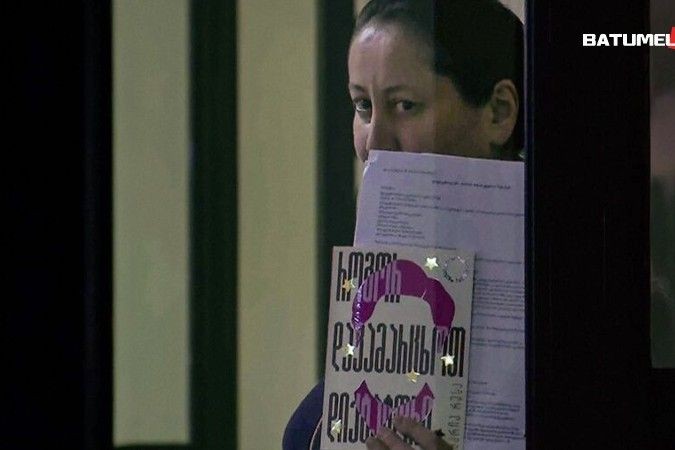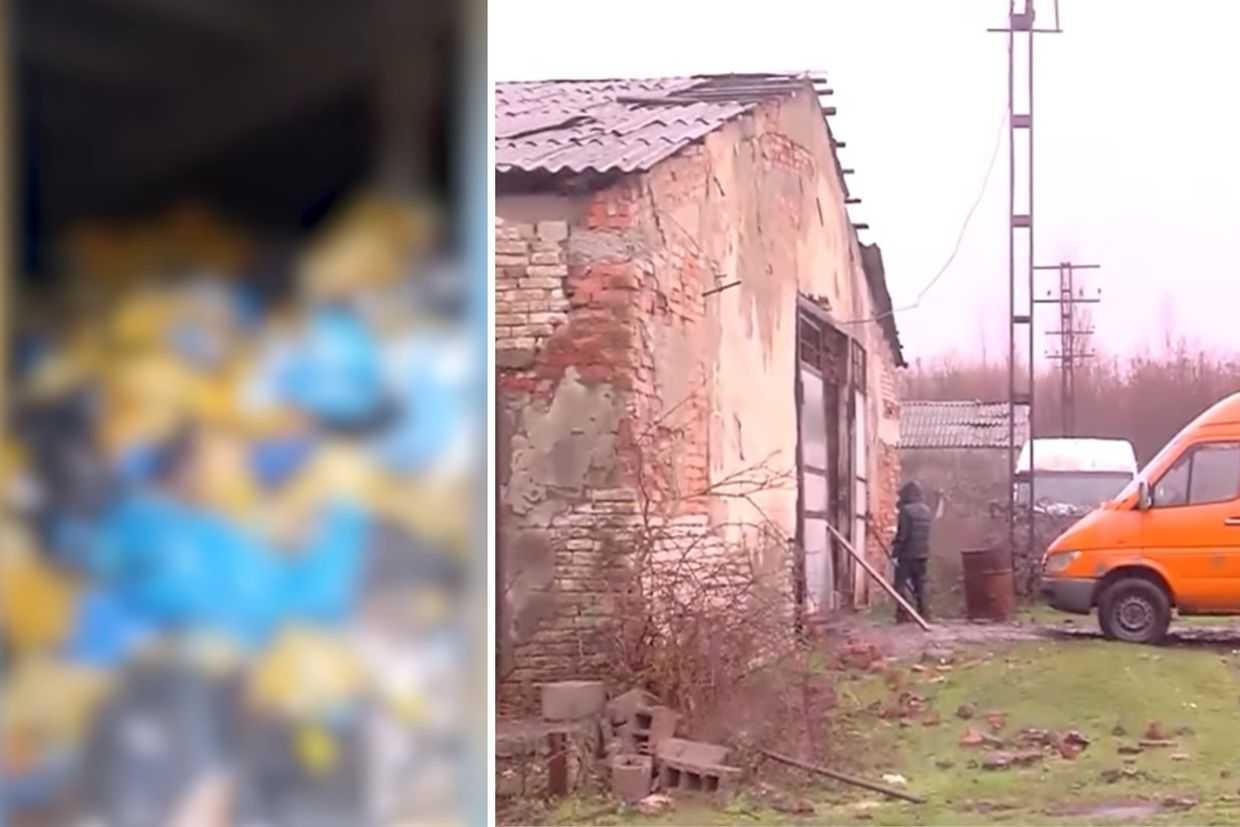Batumelebi and Netgazeti founder Amaghlobeli begins hunger strike while in pretrial detention

Mzia Amaghlobeli, the founder and director of Netgazeti and Batumelebi, who is in pretrial detention on charges of ‘assaulting a police officer’, has gone on a hunger strike, according to an undated letter Amaghlobeli sent from prison.
It is unclear when she began the hunger strike.
‘Freedom is more valuable than life’, Amaghlobeli said, adding that ‘any citizen could find themselves in my situation, someone who wants to live in a democratic, European, and Russia-free Georgia’.
According to her, the circumstances of the criminal case are ‘the result of repressive, treasonous, [and] violent processes directed against individuals, freedom of speech, and expression, which have been developing over the past year and are taking root in our daily lives as [a] dictatorship’.
Amaghlobeli urged citizens to fight ‘while it’s not too late’.
‘Fight everywhere, whether you are in the country or abroad, in the village or city, on the streets or in auditoriums, in public and workspaces. Be brave, take care of each other, and strengthen one another’, the letter read.
Amaghlobeli was first detained on 11 January for hanging a poster at a pro-European rally in Batumi, but was later released that same day.
Minutes after her release, she was detained again, this time on charges of slapping Batumi police chief Irakli Dgebuadze, which the prosecutor’s office considered an ‘attack on a police officer’ — a criminal offence which carries a prison sentence of four to seven years.

Following her second detention, a short video was widely circulated by pro-government media outlets and social media personalities that showed Amaghlobeli arguing with Dgebuadze before she slapped him in the face.
Despite the footage showing Amaghlobeli slapping Dgebuadze, many independent media outlets and civil society activists have accused pro-government media of purposefully obfuscating how the police treated Amaghlobeli and other protesters gathered at the scene.
According to the editor-in-chief of Batumelebi, Eteri Turadze, before Amaghlobeli’s second detention, the police unexpectedly began detaining her relatives, who were speaking with her after she was released from her first detention. Additionally, the police verbally insulted both Amaghlobeli and other individuals present at the scene.
On Tuesday, the Batumi City Court left Amaghlobeli in pretrial detention. The next hearing is scheduled for 4 March. However, Amaghlobeli appealed the decision.

In the days following Amaghlobeli's arrest, her colleagues and human rights defenders disseminated information about aggression and degrading treatment she allegedly endured from Dgebuadze during the night of her detention.
According to the Georgian Young Lawyers’ Association (GYLA), following the detention, Dgebuadze tried to physically restrain Amaghlobeli several times and spat in her face.
In addition, Batumelebi released video footage, which, according to the news outlet, captures the moment of Amaghlobeli’s second detention. The video includes verbal abuse and threats directed at her by Dgebuadze during the detention.
GYLA also presented an excerpt from Dgebuadze’s testimony, in which the head of Batumi police claimed that Amaghlobeli's slap caused him ‘physical pain’.

Amaghlobeli’s arrest has sparked widespread criticism of law enforcement, the government, and the court system, with multiple human rights organisations saying that Amaghlobeli’s arrest and subsequent long stint of pretrial detention were political decisions.
Local journalists, civil society members and others organized numerous protest actions in Tbilisi, Batumi, Kutaisi, and Akhaltsikhe, calling for her release.
Critics stated that a slap cannot be classified as ‘assaulting a police officer’, a crime that can carry a prison sentence of up to seven years.
‘Criminal law comes into play when the action reaches a certain level of intensity. A slap can only be considered an administrative offense, not a criminal act’, said Vako Natsvlishvili, a legal expert and member of the civil rights movement Voice.

The International Press Institute (IPI) called for the release of ‘veteran Georgian journalist and IPI member Mzia Amaghlobeli’.
Georgia’s Public Defender’s office stated that they had submitted an amicus curiae opinion to the Court of Appeals in the Amaghlobeli case, saying that such an intensive restriction of a person’s freedom based solely on abstract and potential threats was unacceptable.
‘The prosecutor did not properly justify why it was not appropriate to use another, less severe measure of restraint, especially since, according to the appeal, the defence expressed its readiness to pay a fairly large amount of bail, as well as to impose additional obligations’, the statement read.
On 12 January, Batumelebi’s camera operator Guram Murvanidze was also detained during another protest in Batumi while he was filming police arresting demonstrators. He was charged with disobeying the police.
According to a statement from Batumelebi and its sister organisation Netgazeti, Murvanidze told his lawyer that police aggression towards him intensified after he identified himself as a member of Batumelebi’s team. His lawyer claimed that Dgebuadze personally instructed the police to detain Murvanidze.On 14 January, Murvanidze was sentenced to eight days of administrative detention.
Reporters Without Borders then posted on X on Thursday, detailing Manvelidze’s arrest and calling on Georgia’s Interior Ministry ‘to stop this repression of the media and to immediately release the journalists’.










